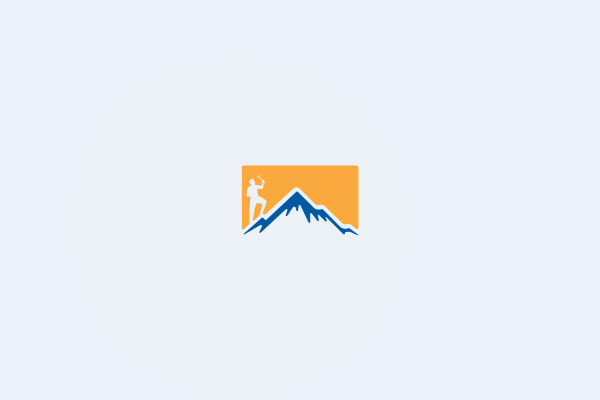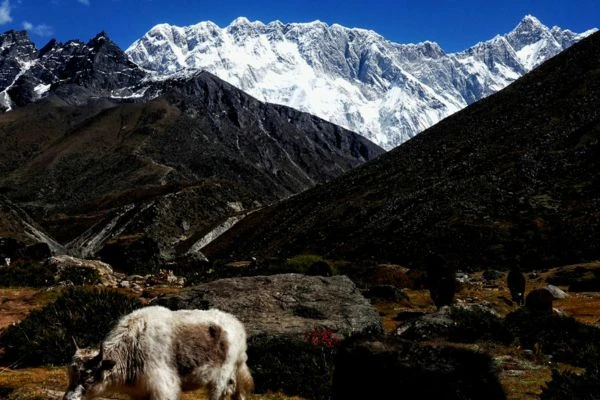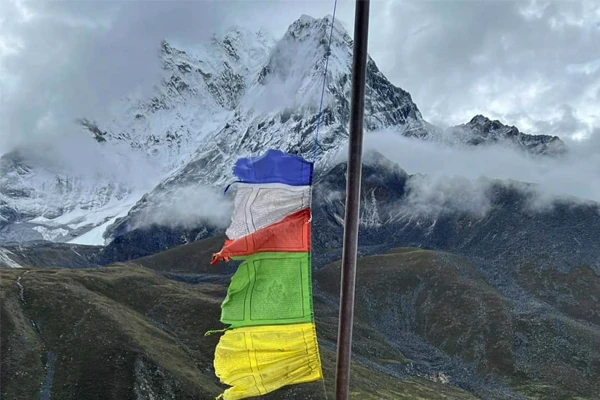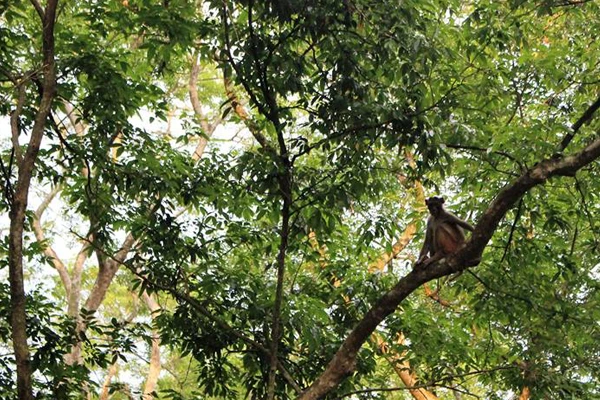Embarking on the breathtaking journey to Annapurna Base Camp in Nepal is a dream come true for avid trekkers and nature enthusiasts alike. Nestled amidst the majestic Himalayas, this awe-inspiring trek offers unparalleled beauty and an immersive experience into the heart of the Annapurna region. However, before embarking on this adventure, it is crucial to grasp the importance of understanding the cost aspects involved. In this blog, we will provide full detail about Annapurna Base Camp Trek Cost and it’s essential to budget accordingly.
Moreover, the blog will cover everything you need to know about permits, accommodations, food, trekking gear, transportation & other personal expenses in depth.
Importance of Understanding the Cost Aspects
While the allure of Annapurna Base Camp is undeniable, comprehending the cost aspects is essential for a well-planned and seamless adventure. By gaining a clear understanding of the expenses involved, you can avoid surprises, make informed decisions, and ensure that your journey remains both financially feasible and enjoyable.
From permit fees and transportation costs to accommodation and food expenses, various factors contribute to the overall cost of the trek. By considering these aspects in advance, you can create a realistic budget and make choices that align with your preferences and resources.
Annapurna Base Camp Trek Cost Breakdown
Initial Cost
International Flights and Travel to Nepal: The journey to Annapurna Base Camp begins with reaching Nepal, a land of rich culture and natural wonders. The initial expense includes international flights to Kathmandu, the capital city of Nepal. The cost of flights may vary depending on your location and the time of year. It's advisable to book your flights in advance to secure the best deals and ensure a smooth start to your adventure.
Accommodation in Kathmandu and Pokhara: Accommodation prices in Kathmandu and Pokhara can vary based on the type of accommodation and its location. Here are approximate price ranges for different types of accommodations per night:
Budget Guesthouses/Hostels: $10 - $30
Mid-range Hotels: $30 - $100
Luxury Hotels: $100 and above
Note: It's advisable to book your accommodation in advance, especially during peak trekking seasons, to ensure availability and to negotiate better prices.
Transportation to the Trek Starting Point: The cost of transportation from Kathmandu or Pokhara to the starting point of the Annapurna Base Camp trek will depend on the mode of transport chosen and the distance covered. Here are estimated prices for different transportation options:
Private Vehicle: $100 - $200 (one way)
Shared Transportation (Bus/Jeep): $10 - $30 (one way)
Note: Nepal Spirit Adventure, as a reputable trekking company, can assist you in arranging transportation to the trek starting point at competitive prices.
Annapurna Base Camp Permit Cost:
Permit for the Annapurna Base Camp trek is very important in terms of safety and rural development.
Foreigner Trekkers need to obtain two permits: the Annapurna Conservation Area Permit (ACAP) and the Trekkers Information Management System (TIMS) card. The ACAP cost approximately USD 30 per person, while the TIMS card costs approximately USD 10 per person.
Keep in mind that the cost of the Annapurna Base Camp permit change from time to time.
Where can I get the permits?
To obtain the necessary permits for the Annapurna Base Camp trek, you can acquire them at the Nepal Tourism Board office in Kathmandu or Pokhara. Another option is to go through a registered trekking agency like us Nepal Spirit Adventure. They can assist you in obtaining the TIMS card and ACAP as part of their trekking package services.
Food Cost in ABC Trek
During the trek, you will stay at Tea Houses or lodges which are the only accommodation on the Annapurna Base Camp Trail. The higher you trek, the limited number of accommodations there on the Annapurna Base Camp trail.
Compared to the Everest Base Camp trek food cost, the cost of food at the Annapurna Base Camp Tea houses is relatively affordable. During your trek to Annapurna Base Camp, you will have the opportunity to savor a variety of local cuisine options. Teahouses along the trail offer a range of dishes, including traditional Nepali cuisine and international favorites.
Some popular local food options you can enjoy during the trek include dal bhat (rice with lentil soup), momo (dumplings), thukpa (noodle soup), and various delicious curries. These meals provide a good balance of carbohydrates, proteins, and essential nutrients to keep you energized throughout the journey.
The cost of a meal range from USD 5-10 per meal, depending on the location and the type of food in Annapurna Base Camp tea houses. During the trek; breakfast, lunch, and dinner are provided with their own choice of meal from the menu from us.
Similarly, if you are a vegan or vegetarian; you will get your own choice of meal too.
Drinking Water Sources and Purification Methods:
Staying hydrated is crucial during the trek. You can find drinking water sources along the trail, and it's important to ensure the water is safe for consumption. There are two common methods to obtain safe drinking water:
Bottled Water: You can purchase bottled water at teahouses along the trail. However, keep in mind that the cost of bottled water tends to increase as you ascend higher into the mountains.
Water Purification: Another option is to use water purification methods to make water safe for drinking. Carrying water purification tablets or a water filter can be a cost-effective and environmentally friendly solution. These methods allow you to purify water from local taps or streams. It's recommended to consult with your trekking guide or the teahouse owners for information about the availability of clean water sources and the best purification methods.
The cost of drinking water range from USD 5 to USD 15.
Note: It's important to note that while tap water from the teahouses is generally safe for washing and brushing teeth, it's not recommended for drinking unless properly treated.
Transportation Cost:
The starting point of the Annapurna Base Camp is Pokhara city, which is easily accessible by land transportation & 30 min flight from Kathmandu. From the vehicle, it will cost approximately $10-$50 depending upon the vehicle & will take 5-6 hours to reach Pokhara. Similarly from flights, it will cost anywhere from $50-$100 depending on the airline and season.
Contact Nepal Spirit Adventure, we offer both ground transportation and flight upon request in the package.
Trekking Gear Costs for Annapurna Base Camp
When embarking on the Annapurna Base Camp trek, having the appropriate gear and equipment is crucial for a safe and sustainable journey. While it's not necessary to purchase all the gear, renting is a viable option, especially in Kathmandu or Pokhara. The cost of renting trekking gear can vary based on the brand and quality, typically ranging from $1 to $5 per day. Essential items such as sleeping bags, down jackets, and trekking poles are commonly available for rent. By opting for rental gear, you can save money while still ensuring you have the necessary equipment for a comfortable and successful trek.
Can I rent the gear in Kathmandu or Pokhara?
Yes, you can rent trekking gear in Kathmandu. Kathmandu is a popular hub for trekkers, and you'll find numerous shops and rental services that offer a wide range of trekking gear for rent. These rental stores cater to the needs of trekkers and provide various equipment such as sleeping bags, down jackets, trekking poles, backpacks, and more. Renting gear in Kathmandu can be a convenient and cost-effective option, allowing you to acquire the necessary equipment for your Annapurna Base Camp trek without the need for purchasing and carrying excessive gear. It's advisable to research and compare different rental shops to ensure you get reliable and well-maintained gear that suits your requirements.
Other Expenses:
The remaining expenses you should budget for Annapurna Base Camp are as follows:
- Guide & Porters: Hiring a professional guide & porter is optional but highly recommended. If you hire a guide only, it will cost you around $25-35 per day, while a porter can cost around $15-20 per day.
- Trekking Insurance: Trekking Insurance is mandatory before heading for Annapurna Base Camp. The cost of travel insurance varies depending on the provider & the coverage, but you can expect to pay around $50-100 for a two-week trip.
- Foods: If you book with a tour operator like us, you will be provided 3 courses of meal BLD during the trek. Inside Kathmandu & Pokhara city, breakfast will be provided. However, if you are a solo trekker or doing a service trek, then a daily budget of $15-$30 will be enough for you.
10 Cost-Saving Tips for the Annapurna Base Camp Trek
Travel in the Off-Season: Consider trekking during the off-peak seasons, such as the shoulder seasons (spring and autumn), to take advantage of lower prices for flights, accommodations, and trekking packages.
Join a Group or Find Trekking Partners: Trekking with a group or finding trekking partners can help reduce costs as you can share expenses like guide and porter fees, transportation, and accommodation.
Bring your Own Gear: If you already have trekking gear, bring it along to avoid rental costs. Ensure that your gear meets the necessary requirements for the trek and is suitable for the terrain and weather conditions.
Stay in Tea Houses instead of Luxury Lodges: Tea houses along the trail provide basic accommodation and meals at more affordable prices compared to luxury lodges. Embrace the authentic trekking experience and save money by opting for tea houses.
Carry Snacks and Water Purification: Packing your own snacks and using water purification methods, such as water purification tablets or a filter, can save you money on purchasing snacks and bottled water along the trail.
Budget for Additional Expenses: While the trekking package may cover most of the costs, budget for extra expenses like additional meals, hot showers, Wi-Fi, charging electronic devices, and optional side trips.
Bargain and Compare Prices: In Kathmandu and Pokhara, compare prices and bargain for better deals when renting gear, booking accommodations, or arranging transportation. Negotiating can often lead to cost savings.
Be Mindful of Your Expenses: Keep track of your expenses during the trek and be conscious of unnecessary spending. Prioritize essential items and experiences while being mindful of your budget.
Avoid Single-Use Plastic: Refill your water bottles instead of buying bottled water to save money and reduce plastic waste. Many tea houses provide safe drinking water for refills.
Plan and Research in Advance: Conduct thorough research, plan your itinerary, and compare prices in advance. Booking flights, accommodations, and trekking packages ahead of time can often result in better deals.
By implementing these cost-saving tips, you can make your Annapurna Base Camp trek more affordable without compromising on the overall experience and safety.
Frequently Asked Questions (FAQs)
How much does the Annapurna Base Camp trek cost on average?
The cost of the Annapurna Base Camp trek can vary depending on various factors such as the duration of the trek, the trekking package chosen, the number of trekkers, and the time of year. On average, the cost can range from $800 to $1500 per person.
Are there any additional fees or hidden charges?
While most trekking packages include the essential costs, it's important to clarify with your trekking agency any additional fees or charges that may apply. Common additional costs can include fees for extra meals, hot showers, Wi-Fi, charging electronic devices, and optional side trips.
Is it possible to do the trek without a guide or a porter?
While it is possible to trek without a guide or a porter, it is not recommended, especially for first-time trekkers. The presence of a guide ensures your safety, provides valuable information about the route and local culture, and assists with any challenges that may arise. Hiring a porter can significantly lighten your load and enhance your trekking experience.
What factors can affect the overall cost of the trek?
Several factors can influence the overall cost of the Annapurna Base Camp trek, including the trekking package chosen, the number of days on the trail, the type of accommodation, the transportation options, the need for additional equipment or gear, and personal expenses for meals and other amenities.
Can I negotiate the trekking package cost?
While it's possible to negotiate the trekking package cost with some agencies, keep in mind that the price may reflect the quality of services provided. It's essential to choose a reputable and experienced trekking agency that prioritizes safety and customer satisfaction.
Are there any cheaper alternatives to the Annapurna Base Camp trek?
If you are seeking a more budget-friendly alternative to the Annapurna Base Camp trek, there are several shorter treks available in the Annapurna region, such as the Poon Hill trek or the Ghorepani trek. These treks offer beautiful landscapes and cultural experiences at a lower cost.
Do I need to book the trek in advance?
It is advisable to book your Annapurna Base Camp trek in advance, especially during the peak trekking seasons (spring and autumn). Booking in advance ensures the availability of accommodations, permits, guides, and porters, and allows for proper preparation.
How much money should I carry during the trek?
The amount of money to carry during the trek can vary depending on your personal spending habits and preferences. It's recommended to carry enough cash to cover additional expenses, such as extra meals, snacks, beverages, charging electronic devices, and unforeseen circumstances. Carrying a mix of smaller and larger denominations is advisable.
Are there any budget-friendly accommodation options available?
Along the Annapurna Base Camp trek, you will find a range of accommodation options to suit different budgets. Tea houses or basic lodges are more budget-friendly compared to luxury lodges. These tea houses provide basic facilities and comfortable beds, allowing you to experience the local culture and save on accommodation costs.
Is it necessary to have travel insurance for the trek?
Having travel insurance that covers trekking activities is highly recommended. Trekking involves inherent risks, including altitude sickness, injuries, and unforeseen circumstances. Travel insurance provides financial protection and covers medical expenses, emergency evacuation, trip cancellations, and other unforeseen events, ensuring peace of mind during your trekking adventure.
Nepal Spirit Adventure: Your Trusted Trekking Partner
In your quest to conquer the Annapurna Base Camp, choosing a reliable trekking company is of paramount importance. Nepal Spirit Adventure, renowned for its expertise and commitment to delivering exceptional trekking experiences, stands as your ideal companion on this awe-inspiring journey. With their experienced guides, personalized service, and dedication to safety and sustainability, Nepal Spirit Adventure ensures that you embark on the trek of a lifetime, while also providing transparent cost breakdowns and assistance in tailoring your adventure within your budget.




